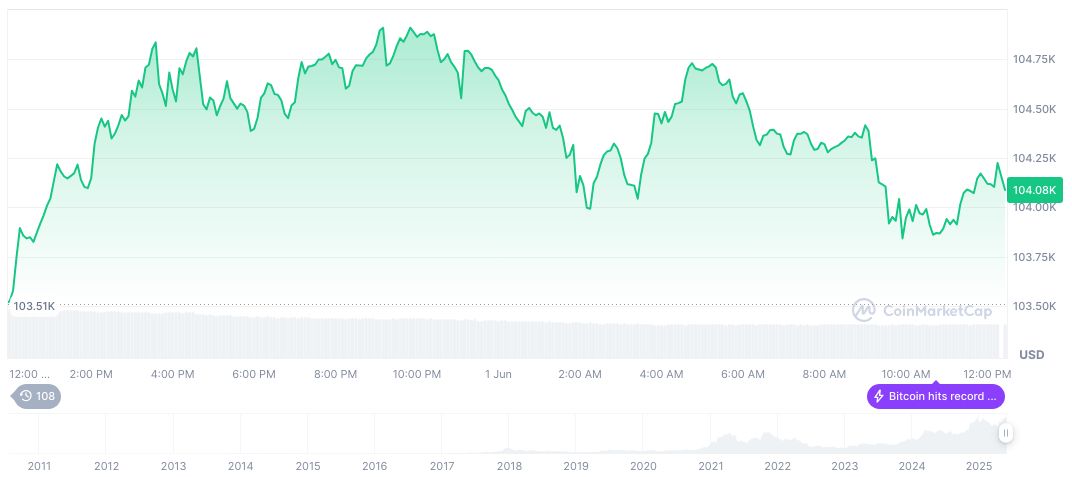- Meta shareholders reject proposal to invest cash reserves in Bitcoin.
- Proposal met with significant shareholder opposition, citing volatility.
- No immediate financial impact on Meta’s balance sheet observed.
Meta Platforms shareholders rejected a proposal to include Bitcoin in company financials at the annual meeting on June 1. Meta shareholders overwhelmingly opposed the move, citing concerns about Bitcoin’s volatility.
The proposal, introduced by Ethan Peck, suggested leveraging Bitcoin as a hedge against inflation. It reflects ongoing debates over digital asset adoption.
Meta’s Shareholder Meeting Overwhelmingly Backs Volatility Concerns
Ethan Peck, advocating for Bitcoin adoption, proposed Meta Platforms convert some cash reserves to Bitcoin at the shareholders meeting. The proposal saw over 4.9 billion shares against and 3.92 million in favor. Meta’s board recommended rejection, citing the sufficiency of existing treasury strategies without the need for digital assets.
Bitcoin advocates at the Bitcoin 2025 conference urged Meta to see Bitcoin as a strategic reserve, but lacking direct leadership support from Meta, including CEO Mark Zuckerberg, the proposal did not gain traction. The trade-off is maintaining traditional asset strategies, avoiding perceived market risks associated with cryptocurrency volatility.
“He called on Meta to consider converting some of its $72 billion cash reserves into Bitcoin, positioning the move as a hedge against inflation and underperformance in traditional fixed income assets.”
Tech Giants’ Reluctance Hinders Institutional Bitcoin Adoption
Did you know? The rejection parallels Microsoft’s decision earlier in 2025 when over 99% of shareholders also opposed Bitcoin inclusion. This suggests a shared hesitancy within Big Tech towards adopting Bitcoin.
Bitcoin, trading at $105,234.22, holds a market cap of $2.09 trillion and a dominance of 63.52%, per CoinMarketCap. Its 24-hour trading volume stands at $34.8 billion, down 24.04%, with price changes showing a 0.69% rise in 24 hours but a 1.79% decline over seven days. Longer-term shifts include a 7.90% increase over 30 days and a notable 20.82% rise in 60 days. Coincu research highlights that despite advocacy, the consistent lack of acceptance by major tech firms may limit short-term institutional crypto engagement. The broader tech industry’s reticence reflects cautious economic signaling as enterprises balance potential crypto rewards with inherent risk factors.
The broader tech industry’s reticence reflects cautious economic signaling as enterprises balance potential crypto rewards with inherent risk factors.








